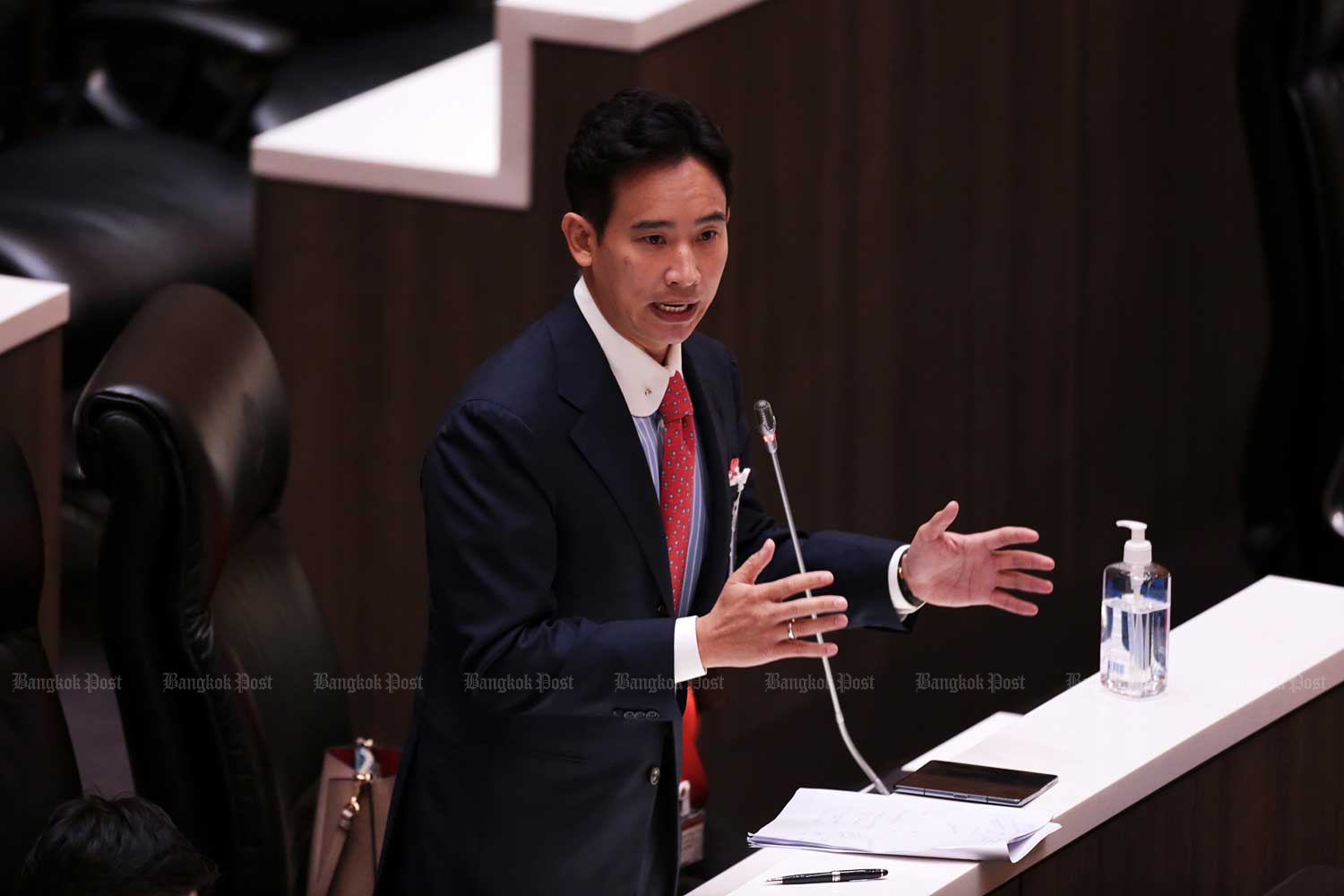
Move Forward Party (MFP) leader Pita Limjaroenrat on Thursday failed to gather enough support in parliament in his nomination to become the country’s 30th prime minister.
However, Mr Pita refused to buckle, saying he would try to gather the required support before a second round of voting expected to take place on Wednesday.
He also insisted that the party would press ahead with its plan to amend Section 112 of the Criminal Code, also known as the lese majeste law, which was cited as the main reason why several senators refused to back his nomination.
“I accept [the outcome], but I won’t give up,” Mr Pita said. “I will find strategies to gather enough support in the next round of voting.”

“I will also press on with amending Section 112 as I have promised,” he said.
A total of 324 MPs and senators vote in his favour yesterday, with 182 against and 199 abstentions.
The voting took place after a joint sitting of MPs and senators spent six hours debating on the qualifications of Mr Pita, MFP’s sole prime minister candidate.
The session saw 705 out of 749 parliamentarians confirming their attendance for the vote, inducing 216 senators.
Mr Pita needed 375 votes — a simple majority of 749 combined House and Senate seats — to win the office.
Before the vote, parliamentarians challenged Mr Pita over his party’s plan to amend Section 112 and questioned his past holding of iTV shares.
Most speakers who opposed Mr Pita’s nomination took aim at Move Forward’s plan to amend Section 112.
Chada Thaiset, a Bhumjaithai MP for Uthai Thani, said that any change made to Section 112 would cause unrest.
“If you let people insult the monarchy [...] our country will burn,” Mr Chada said. “How about I propose a law allowing people to shoot those insulting the monarchy?”

Supporters sit at the government complex in the Kiakkai area as they eagerly wait for the result of the prime ministerial election. (Photo: chanat Katanyu)
He said that apart from the MFP, the other seven coalition allies do not support changing Section 112.
Mr Pita has always insisted that his party would propose amending Section 112. The proposal is not in the MoU between the eight-party coalition.
United Thai Nation (UTN) MP Wittaya Kaewparadai said the MFP has disrupted Thai politics because no party had ever proposed changing the lese majeste law.
“At the present, 10 political parties in the House, seven MFP coalition allies and most senators do not support changing Section 112,” Mr Wittaya said. “This is a political abnormality. Only one party proposes [a change] while no other parties ever think about it.”
Satra Sripan, a UTN MP for Songkhla, said amending Section 112 would cause division and hatred in society.
Sen Khamnoon Sitthisamarn noted that the MFP proposal to amend the lese majeste law aimed either at reducing jail terms or even lifting the punishments for those convicted of offending the royal institution.
Sen Praphan Koonmee told the joint sitting that Mr Pita was unqualified to serve because of his past holding of 42,000 shares in the broadcaster iTV Plc.
The constitution prohibits a stakeholder in a media organisation from running in a general election.
Mr Praphan warned parliamentarians that if they voted for an unqualified person, they could be considered as performing their duties or exercising their authority in an unconstitutional manner.
During the debate, Mr Pita told parliamentarians that he qualified for the premiership, adding he had never been officially informed about questions related to his MP qualifications.
He was referring to the Election Commission, which asked the Constitutional Court to rule on his eligibility in light of the iTV shareholding scandal.
Earlier, Mr Pita complained that the EC had never informed him of its doubts or invited him to defend himself.
